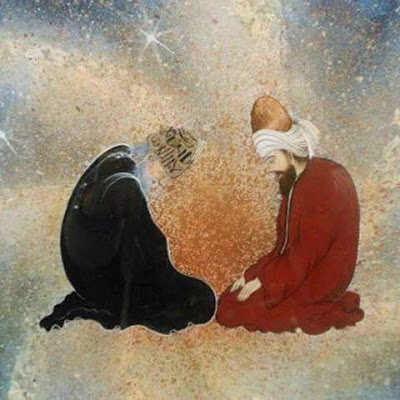Confronting 'Other' - The Thought Paradox
It is possible to take thought not as a principle which organizes and integrates its material from the outside, but as a potency which is formative of the very being of its material. Thus regarded thought or idea is not alien to the original nature of things; it is their ultimate ground and constitutes the very essence of their being, infusing itself in them from the very beginning of their career and inspiring their onward march to a self-determined end.
But our present situation necessitates the dualism of thought and being. Every act of human knowledge bifurcates what might on proper inquiry turn out to be a unity into a self that knows and a confronting 'other' that is known. That is why we are forced to regard the object that confronts the self as something existing in its own right, external to and independent of the self whose act of knowledge makes no difference to the object known. The true significance of the ontological and the teleological arguments will appear only if we are able to show that the human situation is not final and that thought and being are ultimately one. This is possible only if we carefully examine and interpret experience following the clue furnished by the Qur'an which regards experience within and without as symbolic of a reality described by it, as ' the First and the Last, the Visible and the Invisible'.
But our present situation necessitates the dualism of thought and being. Every act of human knowledge bifurcates what might on proper inquiry turn out to be a unity into a self that knows and a confronting 'other' that is known. That is why we are forced to regard the object that confronts the self as something existing in its own right, external to and independent of the self whose act of knowledge makes no difference to the object known. The true significance of the ontological and the teleological arguments will appear only if we are able to show that the human situation is not final and that thought and being are ultimately one. This is possible only if we carefully examine and interpret experience following the clue furnished by the Qur'an which regards experience within and without as symbolic of a reality described by it, as ' the First and the Last, the Visible and the Invisible'.



Yorumlar
Yorum Gönder